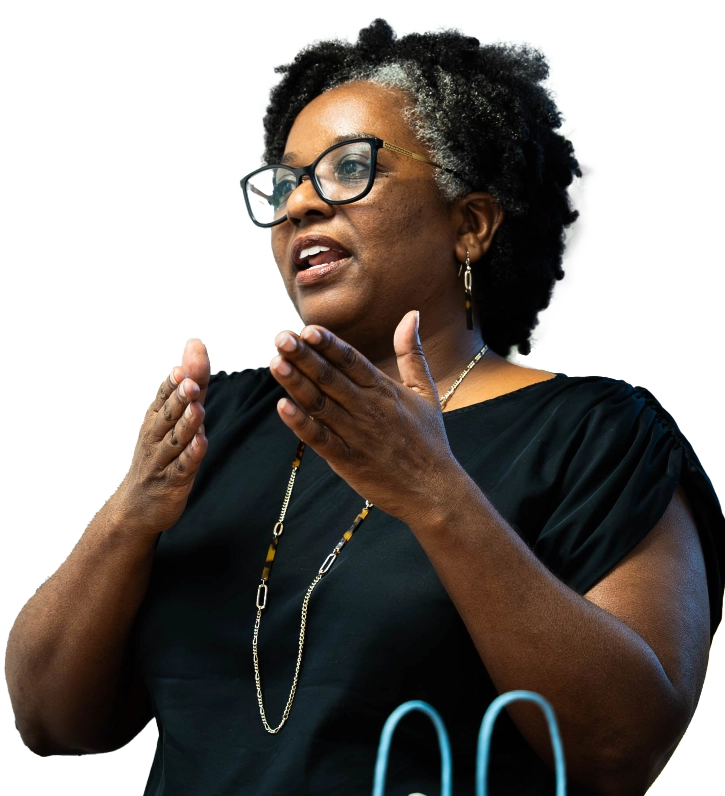ADDRESSING THE HIV/AIDS EPIDEMIC
HIV infection rates are declining in the United States — but not at the same rate for all populations. According to the National HIV/AIDS Strategy, Black women are 19 times more likely to be diagnosed with HIV than white women.
“We have all that is required to enable people living with HIV to lead long and healthy lives, and we have what it takes to prevent new HIV transmissions,” says Associate Professor J. Richelle Joe. “However, the question of whether or not people have access to these resources remains.”
In the U.S., Black cisgender women, who make up 13% of the female population, account for 54% of HIV diagnoses among females.
Source: CDC HIV Surveillance Report (2020)
In Orange County, Florida, Black cisgender women account for 57% of HIV diagnoses among all females and 67% among cisgender females from other race and ethnic groups.
Source: Florida Health Charts (2022)
Orange County, Florida, has been identified by the Ending HIV Epidemic initiative as one of the priority jurisdictions due to its high HIV prevalence rate.
Source: CDC HIV Surveillance Report (2021)

Driven to contribute to the localized effort to end the HIV epidemic among Black women, Joe and a cross-collaborative team are working together with the Black community in Orange County in search of this answer.
The team is analyzing how current local programming and initiatives are meeting the needs of Black women in relation to sexual health and HIV prevention — and where improvements can be made.
They started by conducting interviews with Black cisgender women as well as representatives from HIV/AIDS-serving medical providers and organizations. Many shared the messages they received about sex growing up. Joe says the responses were overwhelmingly consistent: “Don’t do it” and “Avoid pregnancy.”
Through a series of stakeholder meetings, women from the community engaged in action-oriented discussions on how to enhance HIV prevention services and advance Black women’s sexual health. Through these discussions, Joe and the team identified four distinct groups crucial for improving Black women’s sexual health: healthcare providers, public health professionals, Black women and their partners, and the Black community of Central Florida. Now, they are developing strategies to collaborate with each of these populations.
PARTNERS
Robert Wood Johnson Foundation
Rollins College
Let’s Beehive!
UCF College of Community Innovation and Education
12494 University Blvd.
Orlando, FL 32816
